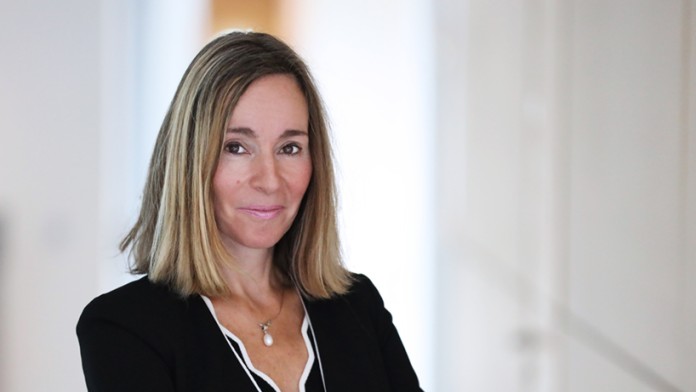Press Release from 2019-05-09 / Group, DEG, KfW Development Bank
Another record commitment for developing countries and emerging economies: KfW allocates EUR 10.6 billion
- Contribution to better overall conditions, private investments and reform partnerships in Africa
- KfW Development Bank: almost half of all new com-mitments go to Africa and the Middle East
- 60% for climate action and environmental protection
- DEG: EUR 1.9 billion for business investments
- DEG customers employ 1.7 million people
KfW further increased its commitments for developing countries and emerging economies on behalf of the German Federal Government in 2018: to EUR 10.6 billion (2017: EUR 9.8 billion) for 469 projects. KfW Development Bank and DEG thus once again exceeded the record set the previous year.
Sub-Saharan Africa, North Africa and the Middle East accounted for almost half of total funding with EUR 4.6 billion (previous year: EUR 3.1 billion). This is also due to the fact that the German Federal Ministry for Economic Cooperation and Development (BMZ) is particularly engaged in promoting Africa and supporting the continent with significant funds within the scope of various initiatives.
“In its cooperation with Africa, the German Federal Government is focusing more on what are known as the ‘reform champions’ who practice advanced good governance. We see this as our mission to further strengthen our commitment in these countries, thereby promoting stable development and partnerships. In general, we want our funding to contribute to further developing Africa's immense economic potential, thereby alleviating poverty,” said Dr Joachim Nagel, Member of KfW Group’s Executive Board.
“Reform partnerships” currently exist with Ghana, Côte d'Ivoire and Tunisia which have so far been pledged EUR 746 million.
KfW Development Bank further increased its commitments with around EUR 8.7 billion (2017: EUR 8.2 billion), setting a new record high.
Nearly 60% of this amount was used for climate action and environmental protection. 5.1 million tonnes of CO2 equivalent a year will be saved in the partner countries thanks to the 2018 commitments.
In addition, KfW stepped up its cooperation with the Green Climate Fund (GCF) and signed a second financing agreement with the GCF for EUR 102.7 million.
In 2018, KfW also founded the Clean Oceans Initiative (COI) together with the European Investment Bank (EIB) and the Agence Française de Développment (AfD) to combat the growing volume of plastic waste polluting the oceans. The three partner banks will invest a total of EUR 2 billion over the next five years in marine protection, waste management and sewage treatment projects. In 2018 a total of EUR 148 million was committed for three projects in Indonesia, Costa Rica and South Africa.
KfW Development Bank currently oversees 126 ongoing projects directly related to refugees in 28 different countries with an overall volume of EUR 4.1 billion. A total of EUR 1.1 billion in new commitments were allocated for projects in this area in 2018. The regional focus of the commitment, with a share of 63%, is also the Middle East. KfW is supporting Iraq, for example, in rebuilding infrastructure in the regions formerly occupied by the Islamic State. Its aim is to contribute to stabilisation there and to create opportunities for the at times more than 3 million internally displaced people in their home country.
New projects receiving promotional funds in 2018 in the areas of water, sanitation and waste disposal will reach over 60 million people, of whom 26% are living below the poverty line.
In addition, 128 million people will benefit from new commitments in areas including reproductive health, healthcare infrastructure and the fight against infectious diseases. Nearly half of these commitments were aimed at directly improving the health of mothers and children.
Alongside budget funds, which stem primarily from the Federal Ministry for Economic Cooperation and Development (BMZ), KfW Development Bank committed its own development funds amounting to EUR 5.3 billion. KfW thus supports the German Federal Government in meeting its international targets and obligations in alleviating poverty, protecting the climate and environment, and in Africa.
KfW subsidiary DEG can also look back on a very positive 2018 financial year. It provided loans and equity capital of around EUR 1.9 billion from its own funds to companies in developing countries and emerging economies. This was also a new record (2017: EUR 1.6 billion). Financing for small and medium enterprises (SMEs) was once again a focus in 2018, making up EUR 967 million. In 2018 DEG allocated a total of EUR 641 million for projects related to climate action and environmental protection. This included financing for the largest solar park in the Caribbean, built with German expertise: Montecristi in the Dominican Republic. From a regional standpoint, Latin America accounted for most financing in 2018 with EUR 579 million, followed closely by Asia.
“In Africa, we have been committed to encouraging entrepreneurial initiative and creating opportunities for the young, growing population for many decades. Business development in Africa was also positive in 2018. Commitments of own funds reached a new all-time high of EUR 438 million, to which EUR 14 million was added through promotional programmes. Another EUR 91 million was mobilised by partners,” said Christiane Laibach, spokeswoman for the DEG Management Board.
The 2018 financial year was also encouraging in terms of the developmental impact of DEG's commitment. The companies co-financed by DEG, for example, employ around 1.7 million people around the world. Some 490,000 of these people are in jobs newly created with DEG investment. The companies also generate local income of EUR 80 billion, of which roughly EUR 11 billion is accounted for by salaries and wages.
More details are available at:
www.kfw-entwicklungsbank.de/International-financing/KfW-Entwicklungsbank/
www.deginvest.de
DEG at a glance


Share page
To share the content of this page with your network, click on one of the icons below.
Note on data protection: When you share content, your personal data is transferred to the selected network.
Data protection
Alternatively, you can also copy the short link: https://www.kfw.de/s/enkBbm2w.B_RA
Copy link Link copied